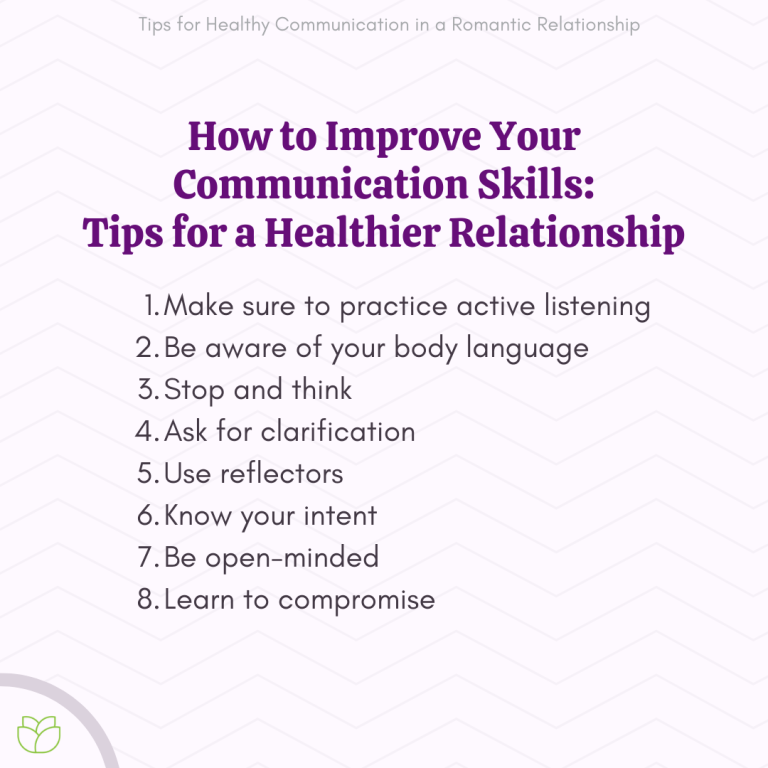Speech Therapy For 2-Year-Olds
If you’re a parent wondering about speech therapy for 2-year-olds, you’ve come to the right place. Helping your child develop their communication skills is an essential and exciting journey. In this article, we’ll explore the world of speech therapy and how it can benefit your little one. So, let’s dive in and discover how speech therapy can be a game-changer for your 2-year-old!
When it comes to speech therapy for 2-year-olds, the goal is to assist children in reaching important developmental milestones. At this age, your child is rapidly absorbing language skills, and early intervention can make a significant difference. From improving vocabulary and pronunciation to enhancing social interaction, speech therapy offers a comprehensive approach tailored to your child’s needs.
But what does speech therapy for 2-year-olds actually look like? Well, it’s all about making learning fun and engaging. Through play-based activities, songs, and interactive exercises, speech therapists create a nurturing environment to encourage language development. So let’s unlock the magic of speech therapy together and set your child up for communication success!
So, if you’re ready to embark on an adventure of speech therapy for your 2-year-old, buckle up! In this article, we’ll delve into the benefits, techniques, and tips to make this journey enjoyable and effective. Get ready to witness your little one’s communication skills soar to new heights!
Looking for speech therapy options for your 2-year-old? Discover effective methods to boost their language skills. Incorporate activities that encourage communication and verbal expression, such as reading books, playing interactive games, and singing songs. Engage in one-on-one conversations, using simple and clear language. Create a supportive and stimulating environment where your child feels encouraged to communicate. Consult with a speech therapist for personalized guidance and exercises tailored to your child’s needs.

Speech Therapy for 2 Year Olds: Unlocking their Communication Potential
Welcome to an in-depth exploration of speech therapy for 2 year olds. In this article, we will delve into the importance of early intervention, the various techniques used in speech therapy, and practical tips for parents to support their child’s speech development. Whether your child is already in speech therapy or you’re considering seeking professional help, this comprehensive guide will provide you with the knowledge and insight you need.
The Importance of Early Intervention
Early intervention is crucial for children with speech and language delays. At the age of 2, children should be acquiring new words rapidly and combining them to form simple sentences. However, some children may experience difficulties in these areas, which can impact their overall communication skills and social interactions.
Speech therapy for 2 year olds aims to address these challenges and provide support during this critical period of language development. By identifying and targeting areas of concern early on, speech therapists can help children overcome barriers and achieve age-appropriate communication skills.
Research has shown that early intervention can lead to better outcomes for children with speech and language delays. It can improve their language abilities, increase their confidence, and enhance their overall quality of life. Therefore, if you notice any signs of speech or language difficulties in your child, it is important to seek professional help as soon as possible.
Techniques Used in Speech Therapy for 2 Year Olds
Speech therapy for 2 year olds utilizes a range of techniques to facilitate language development and improve communication skills. Here are some commonly used approaches:
- Play-Based Therapy: Play is a child’s natural way of learning and exploring the world. Play-based therapy incorporates engaging activities and games to stimulate language development in a fun and interactive manner. Through play, children can learn new words, practice pronunciation, and enhance their communication skills.
- Articulation Therapy: Articulation therapy focuses on correcting speech sound errors. The speech therapist will help the child learn how to produce sounds correctly by providing auditory and visual cues, as well as practicing sound production in structured activities.
- Oral Motor Exercises: Some children may have difficulties with the muscles used for speech production. Oral motor exercises aim to strengthen these muscles and improve coordination. Examples of such exercises include blowing bubbles, blowing through a straw, and tongue exercises.
Tips for Parents to Support their Child’s Speech Development
As a parent, you play a crucial role in supporting your child’s speech development. Here are some tips to help you create a language-rich environment and encourage your child’s communication skills:
- Talk and Engage: Engage in conversation with your child throughout the day. Describe what you see, ask open-ended questions, and encourage them to express themselves. This helps build their vocabulary and language skills.
- Read Aloud: Read to your child regularly, using books with colorful pictures, simple stories, and repetitive phrases. Point to the pictures and encourage your child to name objects and repeat words.
- Provide Opportunities for Peer Interaction: Arrange playdates or join parent-child groups where your child can interact with peers. Peer interaction can foster language development, social skills, and turn-taking abilities.
- Praise Effort: Encourage and praise your child’s efforts in communicating, even if their speech is not yet clear. Show them that their attempts to communicate are valued and supported.
Benefits of Speech Therapy for 2 Year Olds
Speech therapy for 2 year olds offers numerous benefits for both children and their families. Here are some key advantages:
- Improved Communication: Speech therapy can help children improve their communication skills and express themselves effectively, reducing frustration and increasing their ability to interact with others.
- Enhanced Academic Skills: Strong language skills serve as the foundation for future academic success. Speech therapy can help children develop the necessary language skills for reading, writing, and overall academic achievement.
- Increased Confidence and Self-Esteem: As children make progress in speech therapy, their confidence and self-esteem naturally improve. They feel more competent in their ability to communicate and participate in social situations.
- Positive Impact on Social Relationships: Effective communication is essential for building and maintaining relationships. By improving their speech and language skills, children can form positive connections with peers, family, and friends.
Social and Emotional Factors Impacting Speech Development
Speech development in 2 year olds can be influenced by various social and emotional factors. It is important to recognize these factors and address them to support a child’s speech therapy journey. Here are some common factors:
The Role of Parental Involvement
Parents play a crucial role in a child’s speech therapy journey. Active involvement and support at home can greatly enhance the effectiveness of speech therapy sessions. Here are some ways parents can contribute:
- Consistency: Follow through with the strategies and techniques introduced by the speech therapist. Consistency is key to reinforce learning and help your child generalize their new skills in different settings.
- Practice: Incorporate speech therapy activities into daily routines and make them enjoyable for your child. Practice pronunciation, play language games, and create opportunities for communication throughout the day.
- Communication with the Speech Therapist: Maintain open and regular communication with your child’s speech therapist. Share progress, ask for guidance, and discuss any concerns or questions you may have.
Social Anxiety and Speech Development
Social anxiety can impact speech development in 2 year olds. When children feel anxious or self-conscious in social situations, they may shy away from verbal communication or have difficulty expressing themselves. Addressing social anxiety can positively impact speech development. Here are some strategies:
- Create a Supportive Environment: Foster a safe and supportive environment where your child feels comfortable expressing themselves. Encourage open communication, active listening, and provide reassurance.
- Gradual Exposure: Gradually expose your child to social situations that may trigger anxiety. Start with small, controlled interactions and gradually increase their exposure, ensuring they feel supported throughout the process.
- Model and Practice: Model confident and effective communication for your child. Use positive reinforcement and practice social scenarios together, providing guidance and support.
Bilingualism and Speech Development
Bilingualism, the ability to speak two languages fluently, can enrich a child’s cognitive and linguistic abilities. However, there are certain considerations to keep in mind when it comes to speech development in bilingual children.
The Impact of Bilingualism on Speech Development
Bilingual children may experience unique challenges when it comes to speech development. Some common factors include:
- Language Mixing: Bilingual children may mix words or grammatical structures from both languages. This is a normal part of language development and usually resolves as they become more proficient in each language.
- Delayed Vocabulary Growth: Bilingual children may have a slightly slower vocabulary growth compared to monolingual peers. However, this typically evens out over time, and their total vocabulary across both languages becomes comparable to monolingual children.
- Code-Switching: Bilingual children may switch between languages within a conversation or even within a sentence. This is a natural behavior and should not be a cause for concern.
Key Takeaways: Speech Therapy for 2 Year Olds
- Speech therapy can be beneficial for 2 year olds who are experiencing difficulties in their speech development.
- Early intervention is crucial in helping toddlers with speech delays or disorders.
- A speech therapist will create a personalized treatment plan tailored to the specific needs of the child.
- Therapy sessions may involve various techniques such as play-based activities, picture cards, and sound imitation exercises.
- Consistency and practice at home are vital to reinforce the progress made during therapy.
Frequently Asked Questions
Welcome to our frequently asked questions on speech therapy for two-year-olds. Here, we provide answers to common queries regarding how speech therapy can benefit young children. Read on to learn more!
1. How does speech therapy help my two-year-old?
Speech therapy can be incredibly beneficial for two-year-olds who are experiencing difficulties with their speech and language skills. A speech therapist will work with your child to enhance their communication abilities, such as developing vocabulary, improving speech clarity, and strengthening their comprehension of language. Through fun and engaging activities, a speech therapist will target specific areas of need, giving your child the tools they need to communicate effectively.
Additionally, speech therapy can address other aspects of your child’s communication development, including social skills and pragmatic language. By targeting these areas early on, speech therapy can help your child build a solid foundation for effective communication as they grow.
2. At what age should I consider speech therapy for my two-year-old?
If you are concerned about your two-year-old’s speech and language development, it is never too early to seek the advice of a speech therapist. While every child develops at their own pace, it is important to be proactive if you notice significant delays or difficulties in your child’s communication skills. Early intervention offers the best opportunity for positive outcomes, as speech therapy can effectively address any issues and support your child’s development during this critical stage.
Consult with a speech therapist who specializes in working with young children to determine the best course of action. They will evaluate your child’s abilities and provide guidance on the appropriate steps to take, whether it be regular therapy sessions or further assessment.
3. What can I expect during a speech therapy session for my two-year-old?
During a speech therapy session for your two-year-old, the speech therapist will create a fun and engaging environment that encourages your child’s participation. Activities will be tailored to your child’s needs, focusing on areas such as vocabulary development, articulation, and language comprehension.
The therapist will use various techniques to promote speech and language skills, including play-based activities, visual aids, and modeling appropriate communication strategies. They will also provide guidance and support to you as a parent, offering strategies to incorporate speech and language development into your daily routines.
4. How long does speech therapy typically last for two-year-olds?
The duration of speech therapy for two-year-olds can vary depending on the individual needs of your child. Some children may only require a few months of therapy, while others may benefit from ongoing sessions for a longer period. The speech therapist will create a personalized treatment plan based on your child’s specific goals and progress, regularly assessing their needs and adjusting the therapy accordingly.
It’s important to remember that every child progresses at their own pace, and the length of therapy can also be influenced by other factors, such as the severity of the speech and language difficulties. Regular communication with the speech therapist will help you stay informed about your child’s progress and provide guidance on the duration of therapy sessions.
5. How can I support my two-year-old’s speech and language development at home?
As a parent, there are several ways you can support your two-year-old’s speech and language development at home:
– Engage in frequent and meaningful conversations with your child, providing opportunities for them to practice their communication skills.
– Read books together and encourage your child to repeat words or phrases they hear.
– Use gestures, facial expressions, and visual aids to help your child understand and communicate.
– Create a language-rich environment by labeling objects, describing actions, and talking about your daily routines.
– Celebrate your child’s efforts and achievements, providing positive reinforcement and encouragement.
Remember, consistency and patience are key. By incorporating speech and language development into your everyday interactions with your child, you can provide valuable support and help them thrive in their communication skills.
How to Do Speech Therapy with Toddlers at Home
Summary
So, to recap: Speech therapy can be really helpful for 2-year-olds who have trouble talking. A speech therapist can use fun activities to help improve their language skills. It’s important for parents to look out for signs of speech delays and seek help early. With speech therapy, kids can learn to communicate better and catch up with their peers. It’s never too early to get started!
In a nutshell, speech therapy is a fancy name for playing games that help little kids talk. It’s like having a special teacher who knows how to help them say words correctly. So if your 2-year-old is having trouble talking, don’t worry – speech therapy can be a great option to help them grow and learn.


